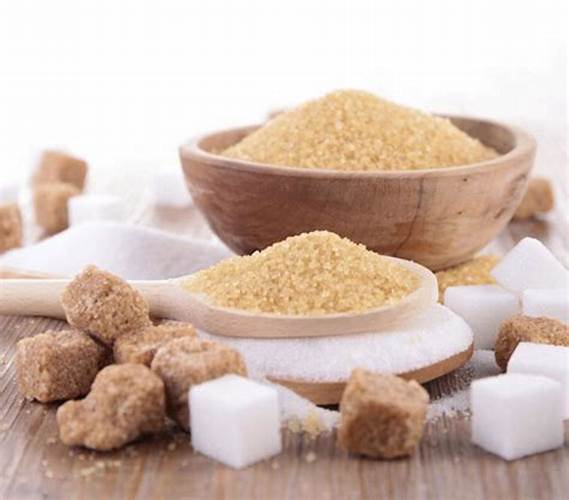Tổng số bài đăng 465.
On November 6, Thai sugar producers issued warnings for violating World Trade Organization rules on free competition in the sugar trade.
Accordingly, sugarcane growers have proposed a meeting with Thailand's Ministry of Commerce about the move, and the possibility of smuggling to other countries to sell at higher prices. Recently, Thailand's Cabinet approved regulations on sugar prices to ease consumers' living costs, following the announcement by the Sugarcane and Sugar Council that it would increase the price of factory sugar by 4 baht per kilogram, which came into effect on October 28. The council attributed producers' production costs to higher prices due to rising sugarcane prices due to drought.

Thailand could be dragged into another dispute with major sugar producers and exporters such as Brazil, which previously filed a complaint with the World Trade Organization (WTO) over the Thai government's measures to subsidize sugarcane cultivation and sugar production. putting other sellers in the global market at a disadvantage.
In 2018, the Thai government finally relented and agreed to let sugar prices be determined by the market. The Thai cabinet's decision to halt sugar price hikes could be seen by other countries as an attempt to intervene in the market through price controls. Thailand may experience more illegal sugar trade along the border due to higher overseas sugar prices.
The price of sugar on the global market is 25-27 cents a pound, up sharply from the previous 16-17 cents a pound.
The increase was attributed to drought conditions worldwide as well as India's decision to reduce sugar exports to 600,000 tonnes this year. In Thailand, sugar consumption is 2.5-3 million tons. This amount is lower than the quota sold domestically because Thais tend to eat less sugar for health reasons and there are many sugar substitutes available.
Somporn Isvilanonda, a senior scholar at the Thai Knowledge Network Institute, disagrees with the government regulating sugar prices and controlling exports because this would cost Thailand sales opportunities in the global market, unfairly burdening consumers. The scholar said that adjusting sugar prices as production costs rise such as fertilizer, labor and fuel may be unfair to sugarcane farmers. The 4 baht increase was deemed too high and unfair, half of which went to the Sugarcane and Sugar Fund to encourage farmers to cut fresh sugarcane without burning, in order to reduce the PM2.5 problem. This is said to be unfair as it pushes the burden on consumers.
Analysts suggest using the two-baht increase for R&D to boost productivity for sugarcane farmers, such as developing sugarcane varieties or drip irrigation systems to reduce production costs. If production costs fall while yields per rai increase, sugarcane farmers will eventually have more income.
The government's regulation of domestic sugar prices and oversight of exports exceeding 1 tonne in order to control inflation and maintain food security will cause Thailand to miss out on sugar exports at a time when prices hit 13-year highs because of El Niño conditions. The price of sugar on the world market exceeds the price in the country. Based on domestic sugar consumption, the ratio of domestic consumption to exports should be 25:75 for domestically produced sugar.
However, given that the government aims to control domestic retail, this means Thailand will lose the opportunity to export 75% of its production. The global sugar market is in short supply due to drought, especially in net importing countries such as Indonesia, the Philippines and Malaysia. This year, Indonesia imported up to 5 million tonnes of sugar.
The factory price of granulated sugar is 19 baht/kg, while the global price of sugar is listed at 25 baht/kg, which could lead to illegal exports. In the past, export subsidies were implemented to improve international competitiveness, causing domestic retail prices to rise.
Thailand's General Department of Internal Trade affirmed that sugar price controls, factory and retail price limits as well as new export requirements are considered appropriate at present. The government aims to reduce the cost of living and ensure people are not unduly burdened. The ministry had previously suggested that when adjusting the price of factory sugar, the world market price was not a factor because Thailand is a major sugar exporter. Up to 7.5 million tons are exported annually, while only 2.5 million tons are consumed domestically. Therefore, it is not advisable to refer to world market prices to calculate domestic factory prices.
In addition, the decision of the Sugarcane and Sugar Commission to increase the price of factory sugar by 4 baht per kilogram, half of which is for environmental purposes, burdens consumers, leading to higher costs for them. The agency should seek other means of financial support from the government to address environmental issues.
Thailand's Commerce Ministry recently agreed to set up a working committee headed by Yanyong Phuangrach, former permanent trade secretary and advisor to Trade Minister Phumtham Wechayachai, to manage the balance between the sugar industry and the sugar industry. The committee expects to come up with a suitable solution within a month, before starting the new harvest. The ministry is ready to revoke the decision of the Central Commission on Prices of Goods and Services declaring sugar a controlled product if an appropriate solution is reached.









